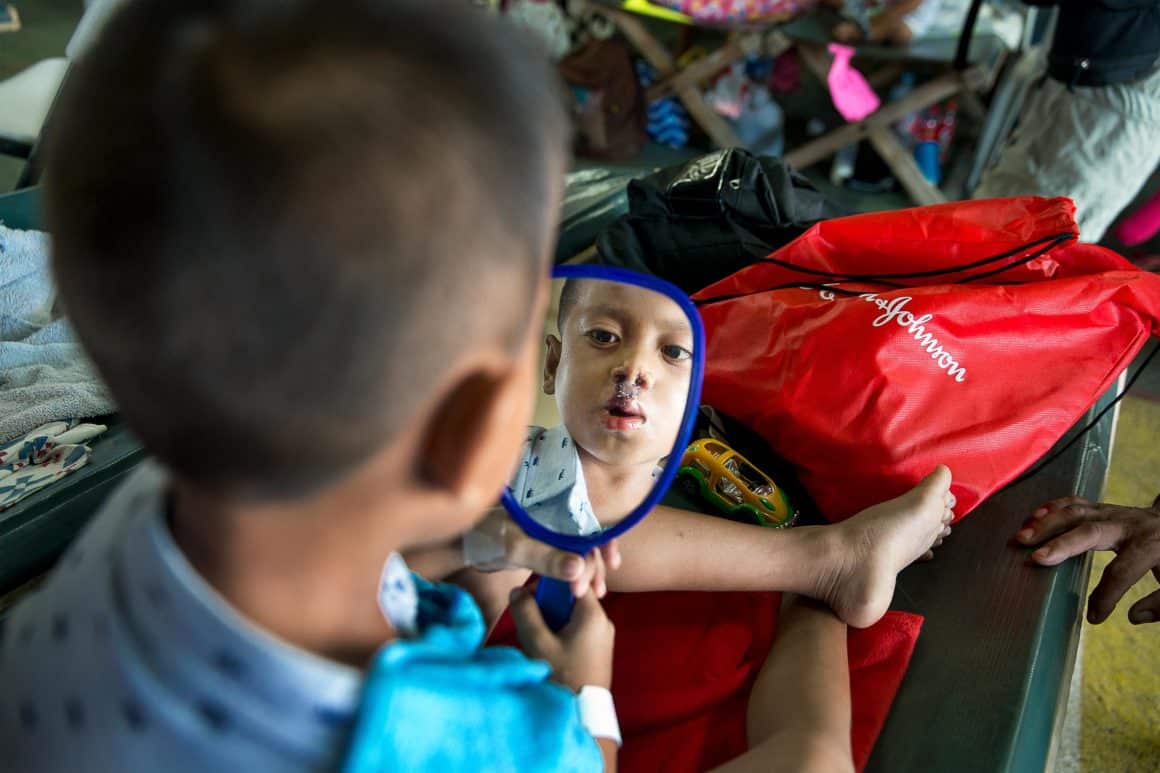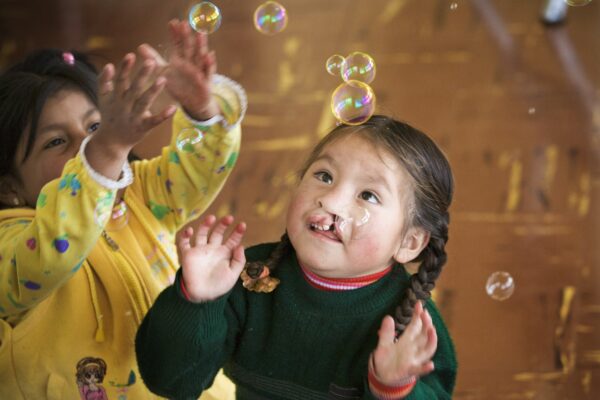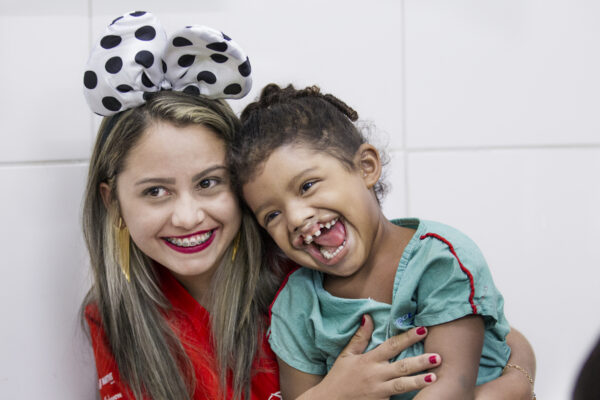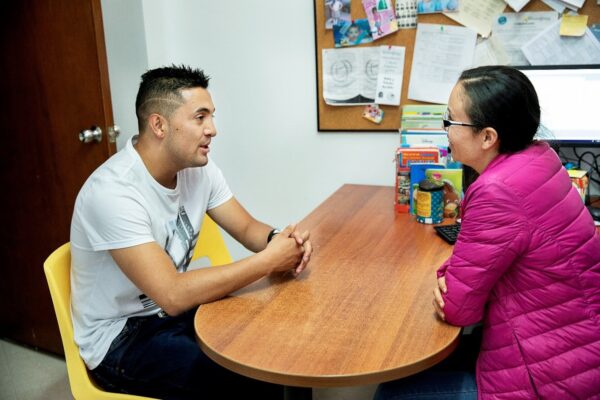Editor’s Note: The Philippines holds a special place in the history – and future – of our organization. It was there that Dr. Bill Magee, a plastic surgeon, and his wife Kathy, a nurse and clinical social worker, became inspired to create Operation Smile after witnessing firsthand the dire need for life-changing cleft surgeries while working an independent volunteer medical mission in 1982. Unable to provide surgery for so many children due to lack of resources, the Magees promised to return. We’ve been going back ever since. As we work into our 35th year, we’re highlighting the birthplace of Operation Smile with this four-story series. This is the third story.
Joseph walks in his flip-flops behind his father and stepmother through an impoverished neighborhood in San Remigio on the Philippine island of Cebu. The 6-year-old carries a big plastic bag to collect recyclables and scrap metal, asking the neighbors to sell him empty plastic bottles, pieces of metal, cans and glass jars.
The family gathers anything that might be worth a few more pesos before they sell it on to “the boss,” who then sells those items to turn a profit. “The boss” pays Joseph’s father, Julito, a fixed price: 3 pesos per kilogram of cans, 2 pesos per kilogram of glass bottles and only 1 peso per kilogram of plastics. On a good day, they’re paid 100 pesos ($2) at the most — so little for a family with four children.
Joseph is the family’s youngest child and the only one born with a cleft lip and cleft palate. His mother, who died several years ago due to heart disease, also collected scrap metal and recyclables. Julito thinks his son’s cleft condition may have been caused by hours of bumpy motorbike rides Joseph’s mother endured while she was pregnant.
The family carries the full plastic bags to their motorbike and sidecar. They all fit on the bike — the plastic bags packed into the sidecar — and they drive to “the boss” to sell the daily collection. As Joseph helps to sort their haul, he finds a damaged toy truck and stops to play with it. He picks it apart and puts it together again. He smiles, but somehow his cleft lip makes his smile look as broken as the toy he found.
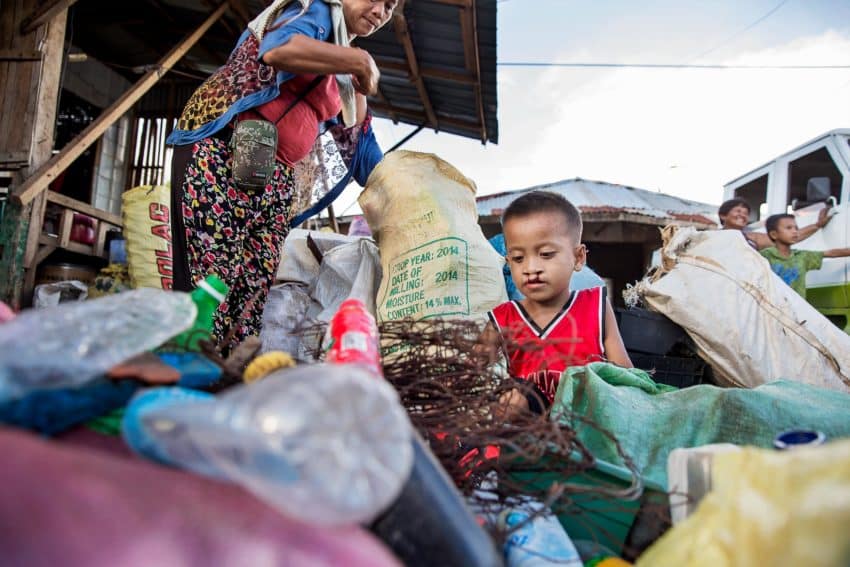
Joseph doesn’t attend school. “He tried once, but came home crying. They call him ‘bungi,’” a derogatory word for cleft, Julito explains.
As if he didn’t have a name.
Sometimes the neighborhood children throw stones at him — the same treatment they give the stray dogs in the area. “Then he fights back and comes home angry, crying and upset,” Julito says.
Operation Smile has a long history in the Philippines. Thirty-five years ago, Dr. Bill Magee and his wife, Kathy, were asked to come to the country to provide free surgeries for children suffering from cleft lip and cleft palate. There were so many children — so many families in need — but the team didn’t have the time and resources to offer surgery to all of them. Then and there, they promised to return to help alleviate this needless suffering. In that moment, Operation Smile was born.
There’s still a massive need for cleft surgery in the Philippines. For unknown reasons, Southeast Asia, including the Philippines, is a region where cleft is more common than the rest of the world — around one in 500 children born here suffer from cleft conditions. The global average is closer to one in 750 births. Even though there are skilled plastic surgeons in the country — some volunteer for Operation Smile — most families cannot afford the cost of surgery and must rely on free procedures offered by organizations like Operation Smile.
Joseph’s family is no exception. Even the bus fare to the hospitals of Cebu City is too costly. However, Julito recently learned about Operation Smile and its work from a foreigner he met by chance in his neighborhood.
Now, Operation Smile is conducting a medical mission at one of the hospitals in Cebu City. A local nongovernmental organization, Abounding In Love, provides the family with transportation and lodging at no cost so Joseph can have a chance to receive a new smile.
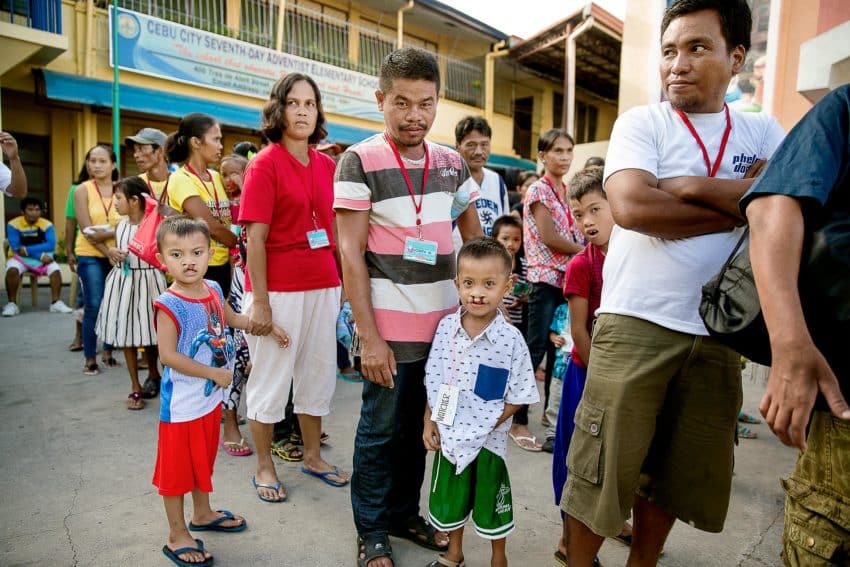 “I am surprised to see how many other children suffer from this condition,” Julito says. “I have mixed feelings. I am happy Joseph is not alone, but also afraid he will not qualify for surgery since there are so many in need of help.”
“I am surprised to see how many other children suffer from this condition,” Julito says. “I have mixed feelings. I am happy Joseph is not alone, but also afraid he will not qualify for surgery since there are so many in need of help.”
Amid the bustling atmosphere of the medical mission, Joseph tries to make sense of the situation. He keeps asking his father why they are there, and when Julito explains, Joseph looks at him with surprise: “So they are going to fix my lip now?”
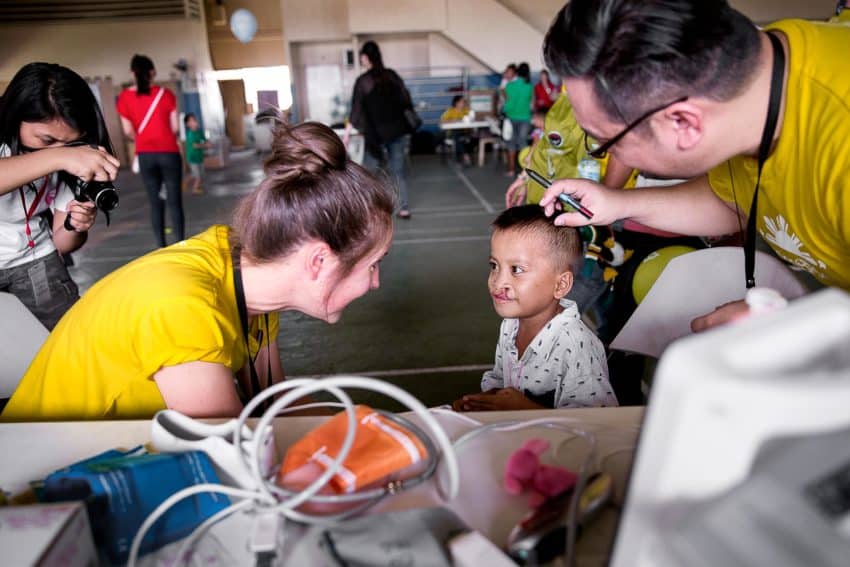 After a passing a comprehensive health evaluation, Joseph is one of many children selected to receive surgery. The day after his cleft lip is repaired — he would receive cleft palate surgery at an upcoming medical mission — Joseph stares at himself in the mirror for a long time. He can’t stop. His face is so different.
After a passing a comprehensive health evaluation, Joseph is one of many children selected to receive surgery. The day after his cleft lip is repaired — he would receive cleft palate surgery at an upcoming medical mission — Joseph stares at himself in the mirror for a long time. He can’t stop. His face is so different.
He sees a new person — a handsome boy.
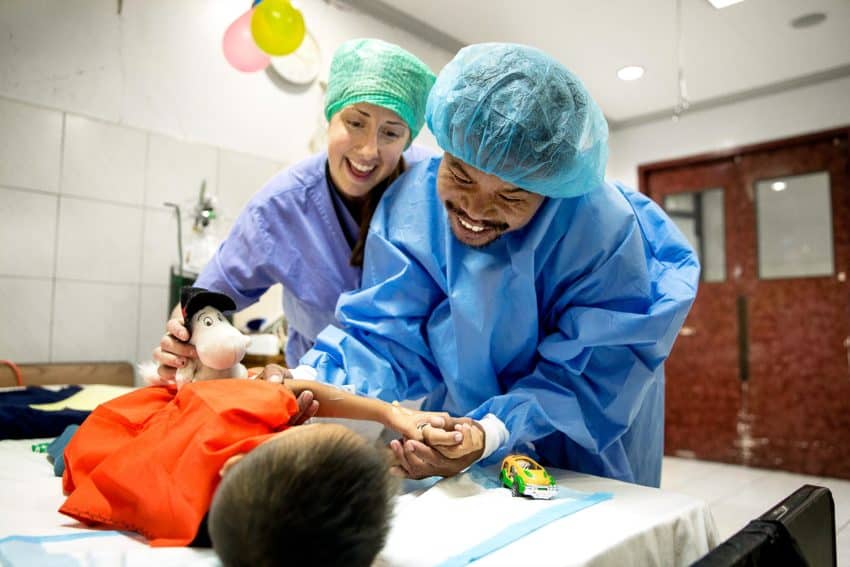
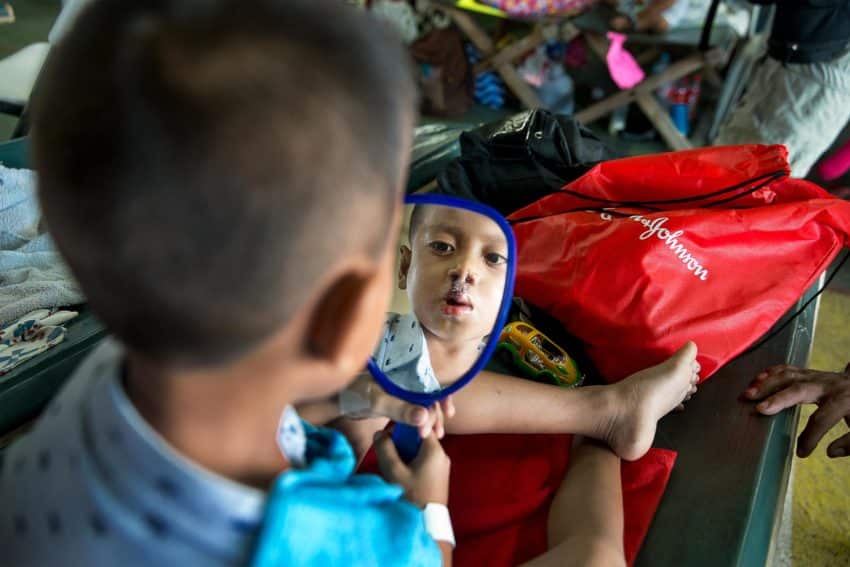
A year has passed and Joseph’s father still struggles to provide for his family. But life has changed so much since Joseph received his surgeries.
“When we were discharged from the hospital and arrived at home, all our neighbors were very excited to see Joseph and told him he looked so handsome,” says Julito, smiling. ”When we came to our house, he got a mirror and looked at his face and said, ‘Oh, I’m very handsome now!’”
Now, Joseph has returned to school with a sense of confidence.
 “The first day at school, Joseph prepared himself carefully. He washed himself and prepared his school bag and dressed in his school uniform,” Julito explains. ”When we got to the classroom, he asked if I was going to stay there with him. I said, ‘Yes, of course I am going to wait for you,’ but my son then explained that there was no need; he could manage to go home on his own.”
“The first day at school, Joseph prepared himself carefully. He washed himself and prepared his school bag and dressed in his school uniform,” Julito explains. ”When we got to the classroom, he asked if I was going to stay there with him. I said, ‘Yes, of course I am going to wait for you,’ but my son then explained that there was no need; he could manage to go home on his own.”
“He is not shy anymore. Unlike before, he likes going outdoors. And even if children still tease him sometimes, he doesn’t get mad at them — he knows his face is different now. Hopefully, the surgeries will bring him a different life than mine. He has more confidence now, and maybe this will give him a chance to get a proper job in the future.”


